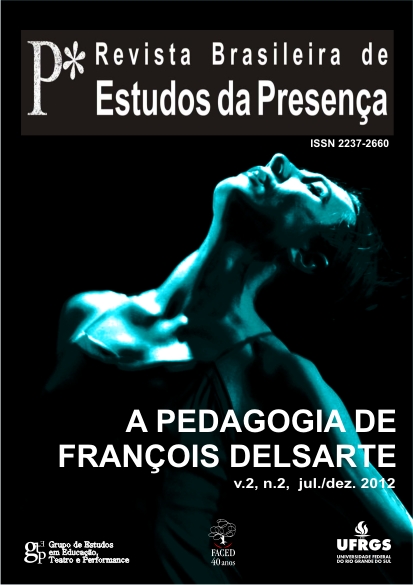The Interpretations of the Delsarte System in Russian and Soviet Theatre in the 1910s and 1920s
Keywords:
François Delsarte, Russian Theatre, Theatre History, Actor, BodyAbstract
According to a number of Anglo-Saxon scholars, François Delsarte’s ideas had repercussions in Russia, in the work of Stanislavski, Vakhtangov and Mikhaïl Tchekhov. The search for correspondences between emotion and gesture implies an organic conceptionof the creative act. From a Soviet/Russian point of view, Delsarte is regarded, however, as the father of a new anthropology of actor-machine. The goal of this article of to shed light on the misunderstandings that distorted the data, and show that in Russia their dissemination happened in ways that modified the manner the Delsarte system was received.
Downloads
Published
How to Cite
Issue
Section
License
Readers are free to transfer, print out and use the articles published in the Journal, as long as there is always explicit mention to the author(s) and to the Revista Brasileira de Estudos da Presença and as long as there is no alteration of the original work. Any other use of the texts needs to be approved by the author(s) and by the Journal. By submitting an article to the Revista Brasileira de Estudos da Presença and having it approved, the authors agree to assign, without compensation, the following rights to the Journal: the rights of first publication and the rights to redistribute the article and its metadata to the indexing and reference services that the editors deem appropriate.
 This journal use a Licença de Atribuição Creative Commons.
This journal use a Licença de Atribuição Creative Commons.

















